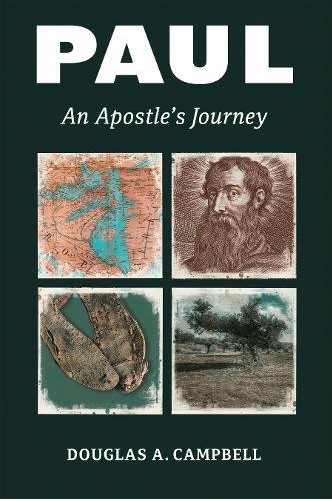 What we often want Paul to be saying in Philemon, namely set the man free and emancipate him and make a statement about the church and slavery for all the ages, is not enough to cover what Paul was doing. Sarah Ruden, in Paul among the People, looks at slavery and at the same time takes a shot at those who want co-opt Paul for their own liberation agendas — like Dom Crossan and Jonathan Reed. Hear this one: “In their own way, present day biblical scholars are as stubbornly themselves, and, as closed to the reality of original Christianity, as both the abolitionists and the plantation owners were” (148).
What we often want Paul to be saying in Philemon, namely set the man free and emancipate him and make a statement about the church and slavery for all the ages, is not enough to cover what Paul was doing. Sarah Ruden, in Paul among the People, looks at slavery and at the same time takes a shot at those who want co-opt Paul for their own liberation agendas — like Dom Crossan and Jonathan Reed. Hear this one: “In their own way, present day biblical scholars are as stubbornly themselves, and, as closed to the reality of original Christianity, as both the abolitionists and the plantation owners were” (148).
But what can this mean? Paul wants to do more than emancipate Onesimus because emancipating him may well have jeopardized the man. Slaves, she observes, were like pets even when they were loved and trusted and part of the family. They were not on the same level. And a runaway was a lost cause altogether. Paul forgives but manumission wouldn’t have made the man a citizen. Freedom meant to choose permanent slavery (a dependent) or to go into exile.
Are you convinced Paul wanted more than emancipation?
So the co-opting of Onesimus for modern day liberation theme misses what Paul was doing. I quote Ruden:
Paul had a much more ambitious plan than making Onesimus legally free. He wanted to make him into a human being, and he had a paradigm. As God chose and loved and guided the Israelites, he had now chosen and loved and could guide everyone. The grace of God could make what was subhuman into what was more than human. It was just a question of knowing it and letting it happen.
The way Paul makes the point in his letter to Philemon is beyond ingenious. He equates Onesimus with a son and a brother. He turns what Greco-Roman society saw as the fundamental, insurmountable differences between a slave and his master into an immense joke (160).
Central to the Roman way of life was the power of fatherhood and Paul co-opts this for Onesimus. Brothers then fits into the same powerful fatherhood theme, and then Onesimus is a brother.
God makes this man a son and Paul makes this man a son and Philemon can make this man a son and God’s fatherhood spreads.














